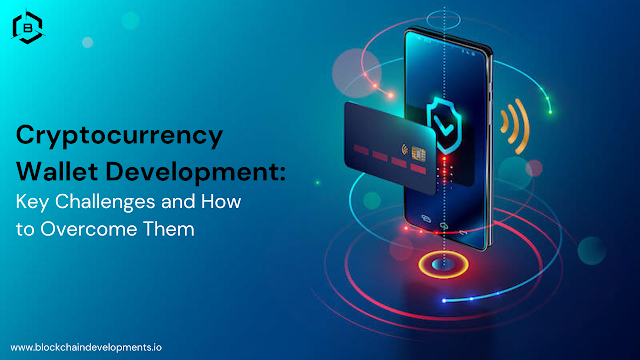Cryptocurrency wallets have become an essential tool for managing digital assets. However, the development of secure and reliable cryptocurrency wallets is not without its challenges. In this article, we will discuss some of the key challenges in cryptocurrency wallet development and how they can be overcome.
- Security One of the most significant challenges in cryptocurrency wallets is ensuring the security of the wallet. Cryptocurrencies are decentralized, meaning they are not controlled by any central authority. This lack of central control makes them vulnerable to security breaches such as hacks and thefts. Developers need to take every possible step to ensure the security of the wallet, including implementing robust encryption and authentication mechanisms, regular security audits, and multi-factor authentication.
- User Experience Another challenge in cryptocurrency wallet development is providing a user-friendly experience. Cryptocurrencies can be complex, and users need to be able to manage their digital assets easily. Developers need to design wallets that are intuitive and easy to use, with clear instructions and user-friendly interfaces. They also need to consider the needs of different types of users, such as beginners and advanced users, and provide features that cater to their specific needs.
- Compatibility Another challenge in cryptocurrency is ensuring compatibility with different operating systems and devices. Cryptocurrency wallets need to be compatible with a wide range of devices, including desktops, laptops, smartphones, and tablets. They also need to be compatible with different operating systems, including Windows, MacOS, iOS, and Android. Developers must thoroughly test their wallets to ensure compatibility with other devices and operating systems.
- Blockchain Integration Integrating a cryptocurrency wallet with a blockchain network can also be challenging. Blockchain networks have different protocols and standards, and developers need to ensure that their wallets are compatible with these protocols. They also need to ensure that their wallets are able to interact with different blockchain networks, enabling users to manage different types of digital assets.
- Regulatory Compliance Cryptocurrencies are still largely unregulated, but this is changing rapidly. Governments around the world are introducing regulations to govern the use of cryptocurrencies, and developers need to ensure that their wallets comply with these regulations. This includes implementing know-your-customer (KYC) and anti-money laundering (AML) procedures and complying with tax laws.
To overcome these challenges, developers need to take a proactive approach to wallet development. They need to invest in robust security mechanisms, including encryption and authentication protocols, and conduct regular security audits to identify and address vulnerabilities. They also need to prioritize user experience, designing wallets that are easy to use and cater to the needs of different types of users.
Developers must thoroughly test their wallets to ensure compatibility with different devices and operating systems. They also need to stay current with the latest developments in blockchain technology, ensuring that their wallets are compatible with different blockchain networks.
Finally, developers need to stay abreast of regulatory developments in the cryptocurrency space. They need to comply with all relevant regulations and implement robust KYC and AML procedures to ensure that their wallets are not used for illegal activities.
In conclusion, cryptocurrency wallet development is not without its challenges. However, by taking a proactive approach and investing in robust security mechanisms, prioritizing user experience, testing thoroughly, staying up to date with blockchain technology, and complying with regulatory requirements, developers can overcome these challenges and create secure and user-friendly wallets that enable users to manage their digital assets with ease.





0 Comments